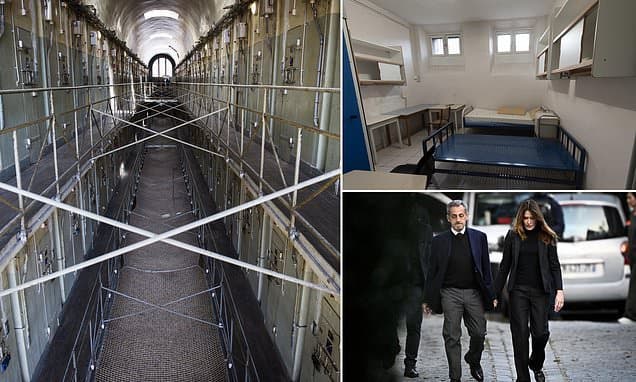Sarkozy Faces Inmate Threats, Special Protections Spark Controversy on First Day in Paris Prison

Former French President Nicolas Sarkozy reportedly encountered a hostile reception upon his arrival at Paris's La Santé prison, with inmates shouting threats and insults from their cells. Three prisoners were subsequently detained following the outbursts directed at the former head of state, whose political career was largely built on a tough-on-crime platform. This incident marks a dramatic turn for a leader now incarcerated among those he once sought to jail.
Sarkozy's imprisonment follows his conviction for conspiring to secure campaign funding from Libya during his 2007 presidential run, a charge he has consistently denied. He was also previously found guilty of corruption and influence peddling in a separate case, receiving a one-year prison sentence, which was later converted to house arrest. These legal setbacks culminated in his entry into the correctional facility.
Reports indicate that Sarkozy is receiving exceptional security measures, including 24-hour protection from two armed guards, who are reportedly the only individuals allowed to carry weapons inside the prison. This arrangement has stirred significant discontent among labor unions representing prison guards, who argue it creates unequal treatment. He also occupies a private cell, described as four times larger than those of regular inmates, within a facility already grappling with severe overcrowding.
The stark contrast between Sarkozy's past policies and his current situation has drawn sharp commentary. As noted by NEXTA, "> Turns out your cellmates remember who signed their sentences." This sentiment underscores the unique challenges and potential animosity he faces from the incarcerated population, many of whom were affected by his policies during his 2007-2012 presidency. The ongoing investigation into the threats highlights the volatile environment surrounding his high-profile incarceration.